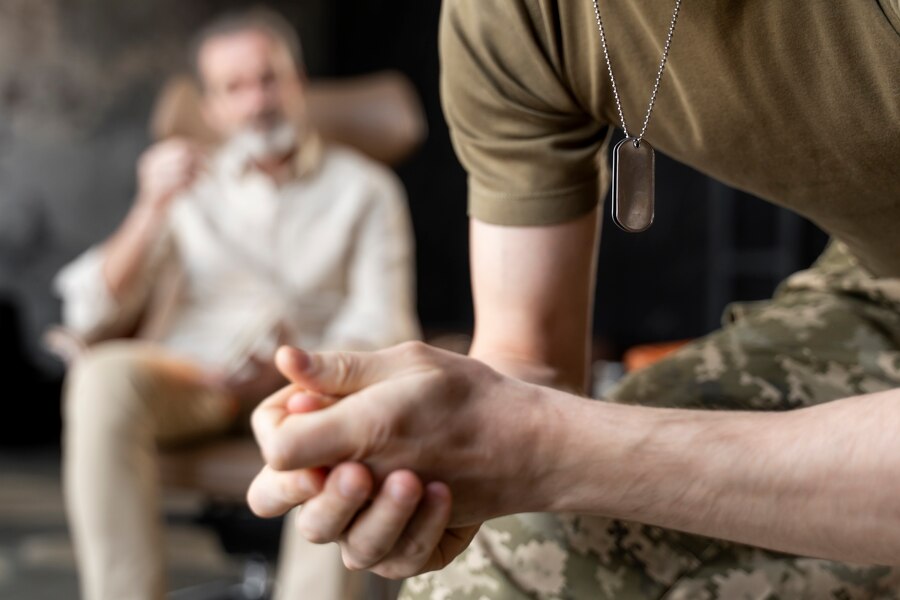Orange County, California, offers a diverse range of substance abuse treatment programs designed to meet the varying needs of individuals and couples seeking recovery. With an array of treatment options available, it can be overwhelming to determine which program is best suited to your specific situation. Whether you or a loved one is struggling with addiction, understanding the different types of treatment programs can help you make an informed decision.
Couples Rehab is dedicated to providing comprehensive and personalized care tailored to the unique needs of individuals and couples. In this guide, we will explore the various types of substance abuse treatment programs available in Orange County, including inpatient and outpatient options, detox services, and specialized programs for different populations.
Overview of Substance Abuse Treatment Programs in Orange County
Orange County is home to a variety of substance abuse treatment programs that cater to the diverse needs of its residents. From traditional inpatient and outpatient programs to more specialized approaches such as holistic and faith-based treatments, the county offers a wide spectrum of options for those seeking recovery. These programs are designed to address different levels of addiction severity, personal preferences, and the unique circumstances of each individual or couple.
The goal of these programs is not only to help individuals overcome addiction but also to provide them with the tools and support necessary to maintain long-term sobriety. By understanding the range of treatment options available, you can better navigate the recovery process and choose the program that best fits your needs.
Inpatient Treatment Programs
Inpatient treatment programs, also known as residential treatment, involve a highly structured and intensive approach to recovery. Participants live at the treatment facility full-time, allowing them to focus entirely on their recovery without the distractions and temptations of everyday life. These programs typically include a combination of medical care, therapy, counseling, and support services.
Inpatient treatment is particularly beneficial for individuals with severe addiction issues, co-occurring mental health disorders, or those who have not succeeded with less intensive treatment options. The immersive environment of inpatient care provides a safe and supportive space where individuals can work through their challenges with round-the-clock supervision and support.
Outpatient Treatment Programs
Outpatient treatment programs offer a flexible alternative to inpatient care, allowing individuals to receive treatment while continuing to live at home and manage their daily responsibilities. These programs typically involve scheduled therapy sessions, counseling, and group support meetings that take place several times a week.
Outpatient treatment is ideal for those with a strong support system at home and a less severe level of addiction. It allows participants to apply the skills and strategies they learn in treatment directly to their everyday lives, which can be beneficial for reinforcing positive behaviors and maintaining sobriety.
Detoxification Services
Detoxification, or detox, is often the first step in the recovery process, especially for those with a physical dependency on substances. Detox involves the supervised removal of harmful substances from the body, typically accompanied by medical care to manage withdrawal symptoms and ensure the safety of the individual.
Detox services in Orange County can be offered as part of a residential or outpatient program, depending on the severity of the addiction and the specific needs of the individual. Completing detox is crucial before transitioning to further treatment, as it prepares the body and mind for the therapeutic work ahead.
Partial Hospitalization Programs (PHP)
Partial Hospitalization Programs (PHP) provide a middle ground between inpatient and outpatient care, offering a high level of support while allowing individuals to return home in the evenings. PHPs typically involve intensive daily treatment sessions, including therapy, counseling, and medical supervision, without requiring an overnight stay.
PHPs are suitable for individuals who need more support than a standard outpatient program can provide but do not require the 24-hour care of an inpatient program. This option is often used as a step-down from inpatient care or as an alternative for those who need a structured treatment environment during the day.

Intensive Outpatient Programs (IOP)
Intensive Outpatient Programs (IOP) are designed for individuals who need a more structured treatment plan than standard outpatient care but still wish to maintain their daily routines. IOPs typically involve multiple therapy sessions each week, along with group counseling and other supportive services.
IOPs are flexible and can be tailored to meet the specific needs of the individual, making them an effective option for those transitioning from inpatient care or those with moderate addiction issues. The focus of IOPs is on providing intensive therapy while allowing participants to apply what they learn in their everyday lives.
Dual Diagnosis Treatment Programs
Dual diagnosis treatment programs are specifically designed for individuals who are dealing with both substance abuse and co-occurring mental health disorders. These programs provide integrated care that addresses both issues simultaneously, recognizing that treating one without the other is less effective.
Dual diagnosis programs in Orange County offer comprehensive treatment plans that include therapy, medication management, and support for both the addiction and the mental health condition. This holistic approach ensures that individuals receive the care they need to achieve long-term recovery.
Holistic Treatment Approaches
Holistic treatment approaches focus on treating the whole person—mind, body, and spirit—rather than just the addiction itself. These programs incorporate a variety of therapeutic practices, including yoga, meditation, acupuncture, and nutritional counseling, alongside traditional therapy and counseling.
Holistic treatment is based on the belief that healing involves more than just addressing the symptoms of addiction; it also involves creating a balanced and healthy lifestyle. For individuals seeking a more natural and comprehensive approach to recovery, holistic treatment programs offer a valuable alternative.
Faith-Based Treatment Programs
Faith-based treatment programs integrate spiritual practices and beliefs into the recovery process. These programs often incorporate religious teachings, prayer, and fellowship as key components of treatment, providing spiritual support alongside traditional therapy.
Faith-based programs are ideal for individuals who wish to align their recovery with their religious or spiritual beliefs. These programs offer a sense of community and spiritual guidance, helping individuals find strength and purpose in their recovery journey.
Gender-Specific Treatment Options
Gender-specific treatment programs are designed to address the unique needs of men and women in recovery. These programs recognize that men and women often experience addiction and recovery differently and provide tailored support that reflects these differences.
Gender-specific programs offer a safe and supportive environment where individuals can explore issues related to gender, such as trauma, relationships, and societal expectations, without the presence of the opposite sex. This can lead to more effective treatment outcomes and a stronger sense of community among participants.
Teen and Adolescent Treatment Programs
Teen and adolescent treatment programs are specifically designed to address the unique challenges faced by young people struggling with substance abuse. These programs provide age-appropriate therapy, counseling, and support services that focus on the developmental needs of teens and adolescents.
In addition to addressing the addiction itself, these programs often involve family therapy and educational support to help young people reintegrate into school and family life. The goal is to provide teens with the tools and support they need to overcome addiction and build a healthy, substance-free future.
Choosing the Right Program for Your Needs
Selecting the right substance abuse treatment program is a critical step in the recovery process. With so many options available in Orange County, it’s important to choose a program that aligns with your specific needs, preferences, and circumstances. Whether you’re seeking inpatient care, outpatient services, or a specialized program, Couples Rehab is here to help you navigate your options and find the right path to recovery.
Our dedicated team is committed to providing personalized care that addresses the unique challenges faced by individuals and couples in recovery. Contact us today to learn more about our treatment programs and how we can support you on your journey to a healthier, happier life.
FAQ’s
What are the different types of substance abuse treatment programs available in Orange County, CA? Orange County, CA offers a variety of treatment programs to cater to different needs, including inpatient, outpatient, partial hospitalization, and intensive outpatient programs.
What is inpatient treatment, and is it right for me? Inpatient treatment involves residing at a facility 24/7, providing intensive therapy and support. It’s suitable for individuals requiring a structured environment to focus on recovery.
How does outpatient treatment differ from inpatient care in Orange County, CA? Outpatient treatment allows individuals to live at home while receiving therapy and counseling. It’s ideal for those with stable living situations and support systems.
What is a partial hospitalization program (PHP), and who is it for? PHP offers a structured day program with intensive therapy, combining elements of inpatient and outpatient care. It’s suitable for individuals requiring a higher level of support than traditional outpatient programs.
What is intensive outpatient program (IOP), and how does it work? IOP involves multiple therapy sessions per week, providing a balance of treatment and daily responsibilities. It’s suitable for individuals with stable living situations and strong support systems.
What is the role of medication-assisted treatment (MAT) in Orange County, CA? MAT combines medication with therapy to treat addiction. It’s often used in conjunction with other treatment programs to manage withdrawal symptoms and reduce cravings.
What is the importance of aftercare in substance abuse treatment in Orange County, CA? Aftercare provides ongoing support and resources to prevent relapse. It includes support groups, therapy, and sober living options.
How do I choose the right type of substance abuse treatment program in Orange County, CA? Consider factors like the severity of addiction, personal preferences, insurance coverage, and support system when selecting a treatment program.
What is the role of holistic treatment in substance abuse recovery in Orange County, CA? Holistic treatment addresses the whole person, including physical, mental, emotional, and spiritual well-being. Many programs in Orange County incorporate holistic therapies like yoga and meditation.
Can I combine different types of substance abuse treatment programs in Orange County, CA? Yes, combining treatment approaches is often beneficial. For example, individuals may start with inpatient care and transition to outpatient or aftercare programs.
















